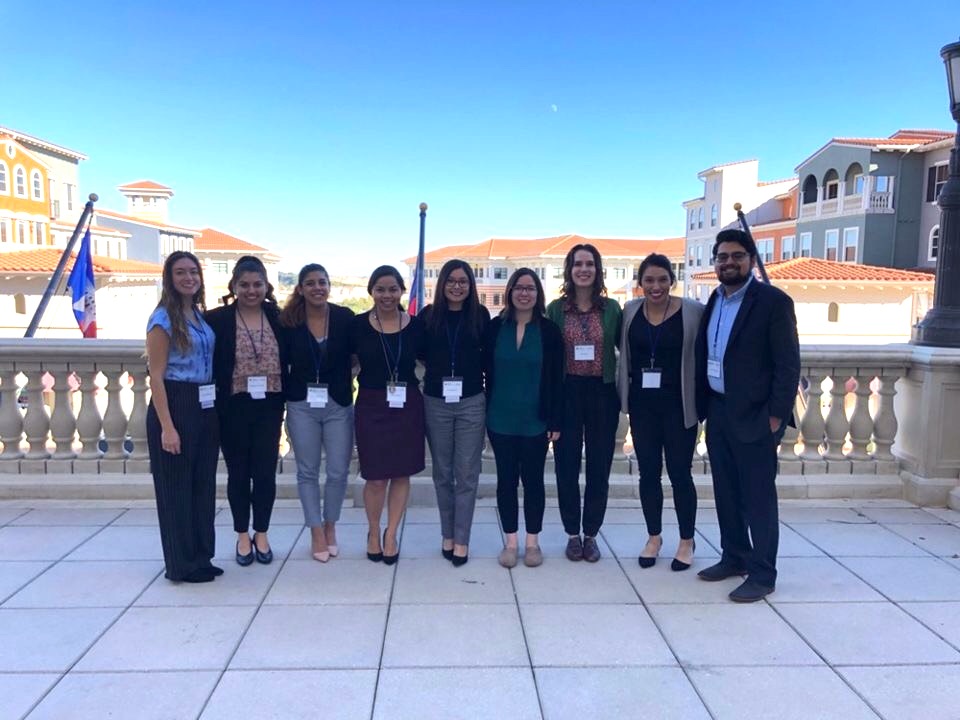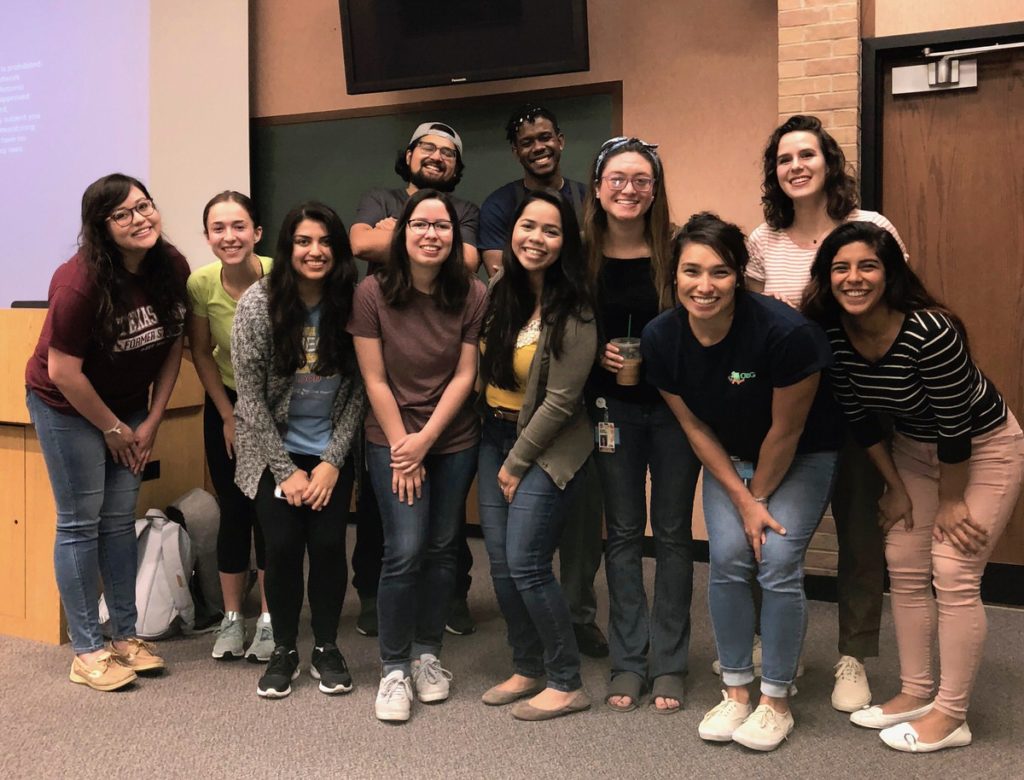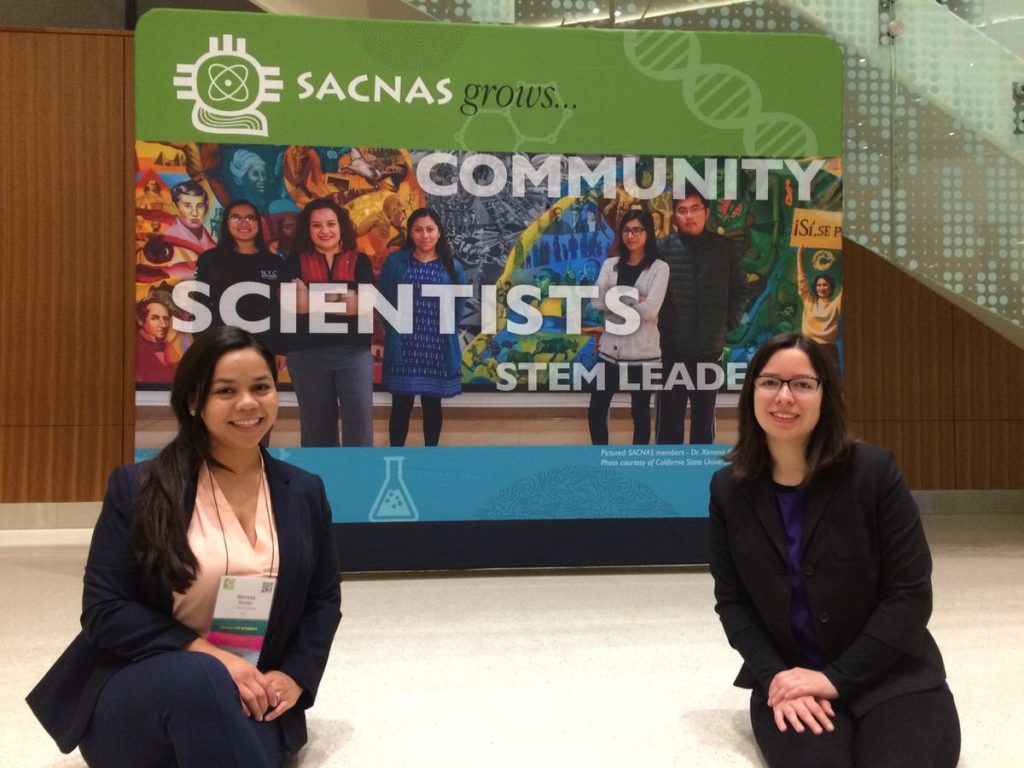Final Words: Marija Anne Djurkovic
 1) Your name and program.
1) Your name and program.
Marija Anne Djurkovic, Master of Science in Immunology and Infection
2) Please tell me about yourself, why did you pick UT Health San Antonio, and your program.
I am originally from Mission TX, a relatively small town that is part of the Rio Grande Valley.
In my off time I enjoy watching movies and my favorite TV shows with my significant other. One of my favorite genres is Sci-Fi, and I truly believe that science first caught my attention when watching these movies back when I was a little kid. I remember there always being a scientist involved who was an expert in some strange topic that no one knew about and who would ultimately save the day.
I guess I wanted to follow in the foot steps of those characters and become an expert in something that I found fascinating. Aside from Sci-Fi, I have a true appreciation for nature and the many cute creatures that roam the earth.
I first heard about our MS I&I program back in 2016 and decided I had to apply. I was drawn to this program because it focuses on the biomedical sciences and because it bridges science, healthcare, and education. I also really liked the idea of moving to a city for the first time and felt that San Antonio was a perfect fit for me.
3) What has been the highlight of graduate school so far? Have you won any awards or have there been any achievements you’ve been proud of?
The highlight of graduate school for me has been getting to meet so many wonderful people. I always have found it difficult to make a personal connection with others, but for some reason, these past two years I’ve felt free enough to express myself and make friends that I will never forget.
One achievement that I am particularly proud of is being a member of SACNAS and getting a travel award to attend the 2018 SACNAS National Conference which was an amazing experience. At the SACNAS conference we got to meet so many talented scientists. I think the most important lesson that resonated with me is that the road to the finish line of our education is not always a “straight line”. There are a lot of struggles that us students must overcome, and the best that we can do is to stay focused on our goals and know that we will ultimately make it to the finish line as long as we believe that we can.
4) Please provide a few sentences summarizing your dissertation. What was the experience like for you?
I worked with my mentor Dr. Peter Dube for my thesis project. One of the main focuses of the Dube lab is investigating ways to treat the uncontrolled inflammation seen in patients with ulcerative colitis. Ulcerative colitis is one of the many diseases that has no medical cure and that affects millions of individuals per year. We care about this disease because it is characterized by inflammation that persists for long periods of time and makes a patient highly susceptible to complications such as colorectal cancer. The Dube lab found that Tgm3gene expression corresponded with better disease outcomes in mice with ulcerative colitis. For my project, we wanted to look at this further and better understand the role of Tgm3in gut inflammation.
Getting to the day of my thesis defense took a lot of work. There were moments of frustration and mental exhaustion. Then there were peaceful days that came temporarily as if being at the eye of a storm. But altogether, I think this was a wonderful experience. I had the pleasure of working with a mentor who was always patient and kind. I also got the opportunity to work in a biomedical research lab for the first time and acquire new skills that I can now apply in the future. Most importantly, this program has allowed me to improve my communication skills. Not only did I have to speak to others about my research, but I also had to learn the importance of being clear and concise to get my points across.
5) Why are you passionate about your research topic? How did you first become interested in it?
I first became interested in my research topic after I spoke to Dr. Dube. I could tell that he was excited about his research, and I was particularly sold when I realized that his research involves working with bacterial pathogens. I am passionate about host-pathogen interactions and disease development. I find it very fascinating that scientist have found ways to use pathogens to our advantage. Using pathogens in the Dube lab has allowed us to learn more about inflammation and of the different factors that contribute to the inflammatory response. One of the goals of the Dube lab is to understand the factors that are contributing to intestinal inflammation during ulcerative colitis in order to develop a novel treatment that can reduce the inflammation and result in long-term remission. While there are treatments available for ulcerative colitis, not all patients respond well to these treatments and remission terms can last a short period of time.
6) What’s next?
After graduation, I plan to stay in San Antonio, work, give back to my community somehow, and enjoy my life a little bit more. I would really like to get on a plane for the first time with my significant other and explore other parts of the world outside of South Texas.
7) Any advice for your fellow graduate students?
Graduate school is not easy, but it is also not impossible. I say, have fun with it. Learn as much as you can. Do something other than classes and lab. Get involved with organizations on campus. Go to the gym to release some stress. Give yourself time to process information and breathe. If you need help with anything, seek help. These years will go by faster than you think, so enjoy them and be happy that you are a graduate student.






